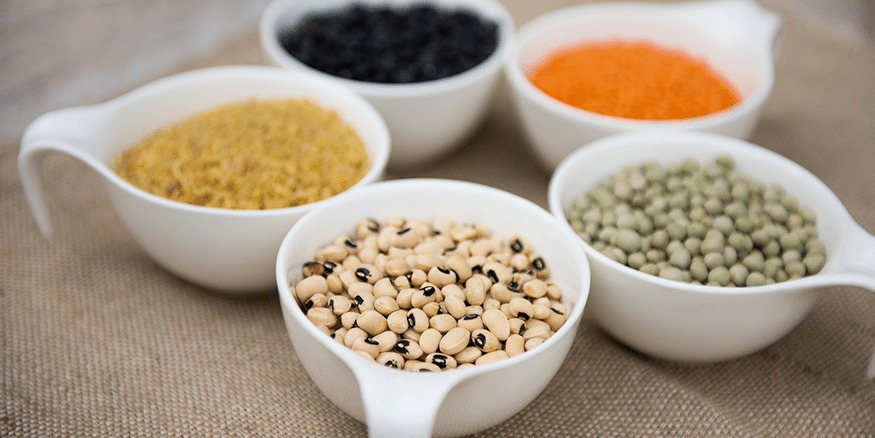
Pulses
The United Nations declared 2016 International Year of Pulses. Beans, lentils, peas, and chickpeas have been part of the food basket for centuries, because people around the world recognize their appeal as nutritious, versatile foods that can play an essential part in healthy diets.
With about 40% of global pulse production, Canada is a world leader, but only 2% of its production is actually consumed by Canadians, the rest is either exported or used for livestock feed.
Now is a great opportunity to give this crop the attention it deserves.
What are pulses? Why are they important?
Pulses are part of the legume family. The term ‘legume’ refers to the plants whose fruit is enclosed in a pod, but the term ‘pulse’ refers only to the dried seed. Examples are lentils, chickpeas, pinto beans, kidney beans, and many more. The term ‘pulse’ comes from the Latin word puls, meaning a thick soup.
As a vital source of plant-based proteins and amino acids for people around the globe, pulses ensure food security, mostly in Africa, Asia, and South America. They are rich in vitamins, minerals, and soluble fibre, which is beneficial for cardiovascular health and maintaining good stool form. They have a low Glycemic Index, which is ideal for making you feel fuller for longer and helping to manage diabetes.
The environmental impact of pulses is lower than most other protein sources because they use less water, making them a sustainable agricultural choice. They have a good relationship with soil microbes that leads to an increase in nitrogen in the soil after harvest, which reduces the need for chemical fertilizers and increases soil fertility.
Last, but not least, pulses are inexpensive. With food prices – especially meat prices – rising, incorporating more pulses into your diet will help keep your grocery bill low without sacrificing nutrition.
In brief, they are a must on your plate!
How to prepare pulses?
Typically, you can buy pulses either canned or dried. If you buy canned pulses, try to choose ones that have no added salt or sugar. They have already been soaked and cooked, so you only need to heat them up before adding to soups, casseroles, sauces, curries, and many other dishes. You can also add them straight into salads or blend them into spreads, such as hummus, if you’re using them cold.
For dried pulses, you need to soak and cook them before you can eat them. Cooking and soaking times vary depending on the type of pulse and how old they are (the older they are, the longer you should cook them). Certain types, such as red lentils, require no pre-soaking and only need to be cooked.
Don’t let flatulence put you off eating pulses
It’s a fact, pulses tend to induce flatulence. Indeed, all foods containing carbohydrates can encourage the production of gas in the large intestine. Carbohydrates include sugars, fibres and starch. When our own digestive tracts do not completely digest these carbohydrates, which can happen with pulses, the production of gas increases even further as bacteria in the large intestine break down these carbohydrates.
Here are some helpful tips to reduce pulses-related flatulence:
- after soaking pulses, throw the used water away and replace it with fresh water before cooking
- ensure you scoop out the foam that forms on the surface when the water reaches boiling point
- when using canned pulses, drain the liquid off and rinse them well
- the addition of ginger, fennel, cumin seeds, and Kombu seaweed to a recipe might help
- avoid combining them with other gas producing foods, such as onions, garlic, broccoli, cabbage, Brussels sprouts, or cauliflower (especially if these are raw)
- incorporate them gradually and consistently into your diet
- cook pulses at length (slow cooker dishes or soups)
- if they still cause you problems, it is possible to buy a natural enzyme to take before eating them, such as the brand Beano®

